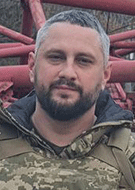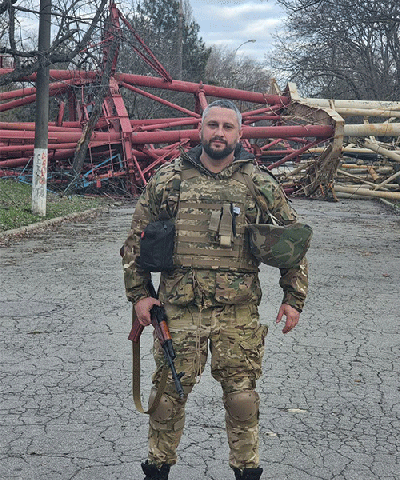Radiologists From Ukraine Share Their Stories
Struggles and successes as radiologists overcome extraordinary challenges to save lives

Poznanskyi
This is one of a series of stories for RSNA News provided by radiologists working in Ukraine. The story is posted as written and the opinions of the authors are their own.
Borys Poznanskyi is a radiologist and chief of the network of private medical centers with CT and MRI rooms called “ART,” which are located in Odesa, Mykolaiv and Kherson. After the beginning of war Borys joined the Armed Forces of Ukraine and now serves in one of the southern cities in Ukraine.
His story was dictated to a colleague as he answered questions.
1. How are you finding your work in Kyiv? Is there still a shortage of radiologists and radiology technicians due to evacuations?
Shortage of specialists is everywhere. The closer to the frontline the greater it is. In Kherson it’s only three to six CT interpreting radiologists left and maybe one or two who can interpret MRI. Half of the scanners are quenched or just closed due to the personnel evacuation from the city.
2. How many patients are you seeing daily? Are you imaging wounds of war or are you providing general radiologic care for screenings and diagnosis?
Depends on the admissions. When it’s a lot of wounded military referrals to the hospital, then the hospital works as an emergency, even though previously it worked only for therapeutic profile. The highest admission I witnessed was 65 patients.

3. What is the status of the equipment you are using? What equipment are you in need of?
The equipment is available in general. In Kherson, it’s minimum two quenches of MRI scanners and severe damage to at least two scanner rooms with blown out windows.
4. Do you see any hopeful humanitarian signs in the medical community?
We are getting big amounts of humanitarian aid, but unfortunately in most cases this is not what we critically need. Usually we receive masks, gloves, disinfectant wipes, etc. But even without this help it would be much harder to provide medical care here.
5. Is your family with you or have they been evacuated to another location? How are you able to cope with the daily rigors of war?
All my family (mother, wife, daughter) stayed in Ukraine. I was conscripted one year ago and coping with stress is becoming increasingly difficult, but we anyway are staying strong.